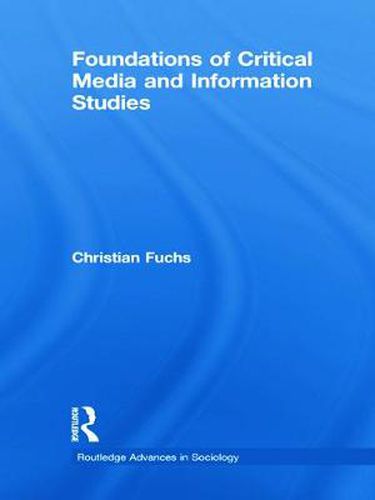Readings Newsletter
Become a Readings Member to make your shopping experience even easier.
Sign in or sign up for free!
You’re not far away from qualifying for FREE standard shipping within Australia
You’ve qualified for FREE standard shipping within Australia
The cart is loading…






Foundations of Critical Media and Information Studies lays down foundations for the analysis of media, information, and information technology in 21st century information society, as well as introducing the theoretical and empirical tools necessary for the critical study of media and information. Christian Fuchs shows the role classical critical theory can play for analyzing the information society and the information economy, as well as analyzing the role of the media and the information economy in economic development, the new imperialism, and the new economic crisis. The book critically discusses transformations of the Internet (‘web 2.0’), introduces the notion of alternative media as critical media, and shows the critical role media and information technology can play in contemporary society.
This book provides an excellent introduction to the study of media, information technology, and information society, making it a valuable reference tool for both undergraduate and postgraduate students of subjects such as Media Studies, Sociology of Media, Social Theory, and New Media.
$9.00 standard shipping within Australia
FREE standard shipping within Australia for orders over $100.00
Express & International shipping calculated at checkout
Foundations of Critical Media and Information Studies lays down foundations for the analysis of media, information, and information technology in 21st century information society, as well as introducing the theoretical and empirical tools necessary for the critical study of media and information. Christian Fuchs shows the role classical critical theory can play for analyzing the information society and the information economy, as well as analyzing the role of the media and the information economy in economic development, the new imperialism, and the new economic crisis. The book critically discusses transformations of the Internet (‘web 2.0’), introduces the notion of alternative media as critical media, and shows the critical role media and information technology can play in contemporary society.
This book provides an excellent introduction to the study of media, information technology, and information society, making it a valuable reference tool for both undergraduate and postgraduate students of subjects such as Media Studies, Sociology of Media, Social Theory, and New Media.